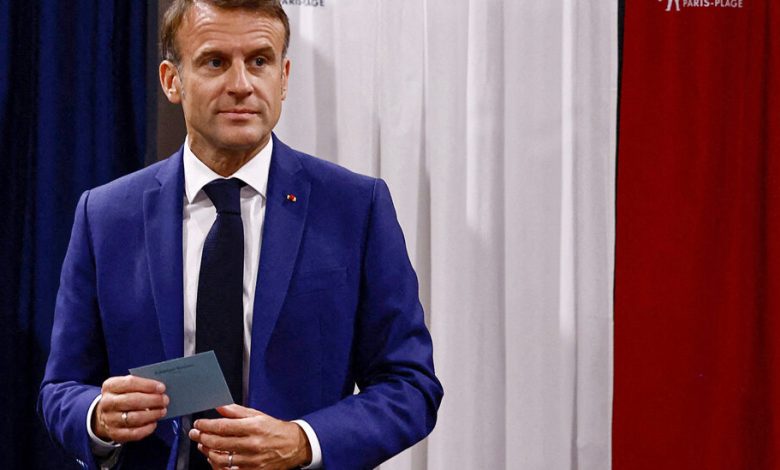The Center Collapses in France, Leaving Macron Marooned

An era has ended in France.
The seven-year domination of national politics by President Emmanuel Macron was laid to rest by his party’s overwhelming defeat in the first round of parliamentary elections on Sunday. Not only did he dissolve Parliament by calling a snap vote, he effectively dissolved the centrist movement known as “Macronism.”
The far-right National Rally, in winning a third of the vote, did not guarantee that it will win an absolute majority in a runoff six days from now, although it will likely get close. But Mr. Macron, risking all by calling the election, did end up guaranteeing that he will be marginalized, with perhaps no more than a third of the seats his party now holds.
“The decision to dissolve the National Assembly has, in fact, put an end to the political configuration that emerged from the presidential election of 2017,” said Édouard Philippe, one of Mr. Macron’s former prime ministers.
In 2017, Mr. Macron, then 39, swept to power, eviscerating the center-right Gaullists and the center-left socialists, the pillars of postwar France, in the name of a 21st-century realignment around a pragmatic center. It worked for a while, but increasingly, as Mr. Macron failed to form a credible moderate political party, the result has been one man and a shrinking circle of allies standing against the extremes of right and left.
That stand, which sometimes served Mr. Macron well, has now collapsed in one of the more conspicuous self-inflicted debacles in recent European politics.
Mr. Macron did not have to call an election just weeks before the Paris Olympics, even though the National Rally trounced him in European parliamentary elections. It is a measure of the desperate straits of France today that a meager victory for Mr. Macron would now be defined as keeping the National Rally, led by Marine Le Pen, from an absolute majority in the National Assembly, even if the price of that is ungovernable chaos.